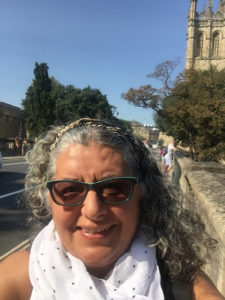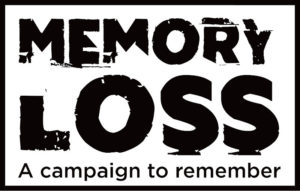News
News & Events
Action for Brain Injury Week | Anita Williams
Anita’s Story
A Short Tale of a Friday night in
A: “Let’s watch a movie”
B: “Ok ? ideas?”
A: “Not sure but something light hearted”
B: “Give me a minute as I check out the hot choices over the last few years”
A: “Ok I’ll grab a tea. Fancy a cuppa?”
B: “I’m ok, I’ll stick to a Friday night beer”
*2 Minutes Later*
B: “Here’s a flick with a high IMDb rating…☝️ here we go….”
A: “Hmmm …Open credits look good. What’s it called?”
B: “‘Spy’ released in 2015”
A: “Cool” ?
A: “Hey Jude Law playing a cameo James Bond… hang on this looks familiar…have I seen this before?? Give me a minute let’s see how much I can remember…”
B: “You sure or should we find another movie anyway”
A: “Give it a minute … let me see if I can remember the storyline”
*5 minutes later…*
A: “Hang on I don’t recall this movie . That’s strange… I remember the first few scenes with Jude Law in his black tie and his suave moves but after that it’s a blank?? Let’s just watch it as it looks good.”
My thoughts ?
So where did I watch this? with whom ? Why didn’t I watch the whole movie ?????
Just like Linkee the game, what is the common factor here??? My memory or should I say lack of it? Does this happen to you? Does this ring any ? bells for you?? Does it make you want to pull your hair out and scream in private? ????
So here’s my memory story.
I was unfortunate enough to have two brain tumours. On the other hand I was incredibly lucky to have two operations to remove as much of the tumours as possible. I’m now on a journey of discovery as I learn to re-engage my brain in normal everyday activities. The two main hurdles I have encountered are fatigue and memory failure. To explain to people who ask how I am, I take the allergy of comparing myself to a barometer. (That doesn’t sound right…Come on what’s the word I’m looking for?)
Like every human being, my body uses heaps of energy to function everyday. I reckon on a good day my fuel tank runs on 30% capacity. One of the biggest drains on my energy is memory retrieval. Following on from my operations, when it comes to recalling something short-term or long-term, I struggle. I find it especially difficult to recall facts and figures. I guess this relates to damaged memory traces and broken encoding. I can literally feel my brain disappearing as it searches for information I previously knew or thought I knew. While I wait for it to surface, I grab myself a mental cup of coffee and cake patiently waiting for the answer to bounce into my consciousness.
Does this annoy me? Yes! Do I suffer from brain fog? Yes! Does my brain hurt when I try really hard in a quiz ? Yes!
What’s my personal solution? Keep on trying and don’t give up. I have noticed there are slight improvements in my retrieval capabilities especially by adopting a number of varied strategies.
My number one strategy is being in a happy state of mind (this doesn’t involve CBT). I get better results when it comes to my memory functions, as I’m not having to push the negative thoughts to one side before I start the recall process. Removing unnecessary complications gives my memory a better, more effective opportunity to utilise my limited energy resources. I have been told my brain is now adapting to the new space in my head, I visualise this as a seedling growing into a flower that needs to be nurtured and nourished in a kind manner to encourage it to blossom with colour.
In medical terms this is referred to the plasticity of the brain. As you can imagine, the brain is now forced to adapt into a new environment. It’s a slow process as there is a lot of complex layering work involved in building a new changing, evolving structure from new cell growth, neuro-transmitters to new pathways retrieval, retention and memory tracing. We just have to believe this can be done ✅ and remember the journey is different for every individual.
One of my other strategies is learning new forms of sensory memory through various creative forms from listening to the radio, hearing my favourite songs, watching plays and movies, reading novels, tuning into lectures and using the power of colour.
What’s very tricky is I feel my thoughts have a low sticking/retention capacity or shaky encoding abilities. My immediate short-term memory struggles with day-to- day activity, especially if it involves cognitively demanding tasks, for example following IT instructions or following the train of thought through a demanding conversation.
By exposing myself to new information on a regular basis, I feel this intrinsically intrigues my brain and gives it fodder to chew over.
Another one of my strategies is taking small steps rather than giant leaps. This enables me to reduce levels of anxiety, fear and panic. Combine this with a good amount of rest mixed with patience and hope I’m finding my memory will improve in the long-term.
I find actively engaging the brain in a variety of different activities will help it to positively repair the brain damage and recircuit the pathways in a way that gives me control. Yes, having a poor memory has its frustrations, but being human and forgetting with age, this is a natural by product of the whole process of living.
Yes, I have to re-read sections of a book as I can’t quite remember the storyline or the importance of a key characters or what clues were revealed in the dialogue. Why do I do this? Because I don’t like to miss the key theme of the story, otherwise I’ll end up not being able to discuss the book or understand the essences of the storyline and therefore not enjoy actually reading a book.
Battling with cognitive understanding as well as memory lapse, I have learnt to take a step back in everyday situations. How I explain this to myself is I understand why memory has a lower ranking in the triage of operations my brain deals with everyday as it repairs brain damage. The good news is I have accepted this situation, therefore I have given my brain the permission to honour this process and rather than constantly undermining myself for what I can’t do, I turn to what I am doing and how the small changes are building up to bigger future changes. I remind myself stress, anxiety and depression will throw more hurdles for me to jump over in my journey. However each time I remember something I was struggling to recall (memory interference), especially when I can see it but can’t grab it as quickly as I would like, I count this as a small win. I’m seeing improvements, be they small but they are still improvements ??
For example, before my tumours I used to cook from memory ?? After my operations, I just can’t recall the recipes any more. However, I’m pleased to say things have improved – I search for the recipe on Google! I might consequently remember elements of it but through repetition and practice I’m getting better at recall and relearning.
I have also developed a method of single focus when conducting a task.
Knowing I have very limited resources available to me, I disconnect from unrelated stimulation around me to allow me to focus on the single task I’m attempting.
Take for example changing my bed. For over a year this was not something I could do myself. Now I access my level of energy before I start, I mentally recall what I need in terms of bedding and then I recall where the items are and when I’m ready mentally, I locate the items and start changing the bed. When I struggle, I split the task into stages so it’s easier for my brain to work out the steps. If I am unable to completely do the bed change myself I ask for help. When this happens I sit down and maybe just change the pillows. By sitting down I’m resting a little, which then allows my brain to use that energy to complete the task. Rest is paramount to memory. When I’m over tired ? there are no resources to focus on memory.
I do things I enjoy or challenge me, as each activity requires various types of memory e.g. quizzes, card games, board games such as Scramble, reading, catching up with the news, watching serials and watching films, cooking, writing, talking to friends and family.
Sport and exercise, such as yoga, calm the mindset and help to improve memory. This is because you are learning and repeating actions, improving motor skills and muscle memory, as well as coordination skills. This assists the development of memory traces and helps to retain impressions of sensory information after the initial stimulus has ceased. At some point, I will seek to embed mindfulness practices in my day to simply calm and slow the neurological activity.
Good nutrition and healthy foods assist healthy brain cell grow giving memory functions a greater chance of success.
Nutritionists have suggested I take regular Vitamin D, iron, magnesium, dark green vegetables, omega 3, protein, berries and less sugar.
I also nap and try to get enough quality sleep ? therefore letting my brain rest and recover and drain away various toxins. It’s working harder than ever as it rebuilds, repairs and learns. Memory is a very complex mental process so it needs a good source of energy and rest to function and improve.
Building a range of experiences, I actively build happy memories to boost my energy with endorphins and enjoy the results as I learn to build a positive future of my own choice. This nicely leads on to Nostalgia which I find builds my self-affirmations. ?? Positivity boosts my energy drive and memory while allowing negativity to drain away before it becomes an added nuisance.
One of my classic problems is remembering what I did at the weekend or during the week? I keep a daily journal of key events which I can reference if I need to recall an event. Writing things down helps me to I increase the chance of remembering an event.
The crazy thing is, I find my fingers start to type something completely differently to what I’m thinking. Is this a short term memory issue or a processing delay or simply an interference issue – I’ll leave you to puzzle ? over this one. Surprisingly I can also suffer with face recognition – apart from the one I see in the mirror every morning.
The best of luck on your individual journey!! ??
– by Anita Williams Brain Injury Survivor
[/fusion_text][/fusion_builder_column][/fusion_builder_row][/fusion_builder_container]
Action for Brain Injury Week | Bob Bailey
Bob Bailey
“At the time this was very upsetting and frustrating that I could no longer work”.
Bob Bailey, 71, from Oxford always loved planting vegetables in his allotment, and it became a lifetime hobby. But after a car accident, he now suffers from short-term memory loss and forgets names.
In 2009, Bob was on his way to a folk concert at St Aldates in Oxford. He was crossing the road when he was hit by a car at over 40mph who was over taking a bus and on the other side of the road.
He suffered two broken legs, broken back, three broken ribs and a fractured skull, which subsequently caused a severe brain injury. Doctors told his wife that he would not survive.
Luckily, after several surgeries, Bob did survive.
But now he has to live with short-term memory loss, along with mobility issues and chronic fatigue.
“Day-to-day life gets frustrating”.
Prior to the accident, Bob worked at Oxford Archaeology in the finds room for over 14 years. Due to his brain injury, he could no longer return to the work he once loved.
Bob said “At the time this was very upsetting and frustrating that I could no longer work. I was about to be promoted to a manager and was thrilled about this but that all changed. I just knew that I was no longer physically or mentally able to do the job anymore”.
As well as forgetting names of vegetables, Bob also cannot remember the names of people who he attends the Activity and Rehabilitation Centre at Oxford Head Injury Services. He finds this frustrating.
Bob has been attending Oxford Head Injury Services for 10 years. The charity helps with rehabilitation activities such as art therapy, socialisation and routine outside of his home environment.




